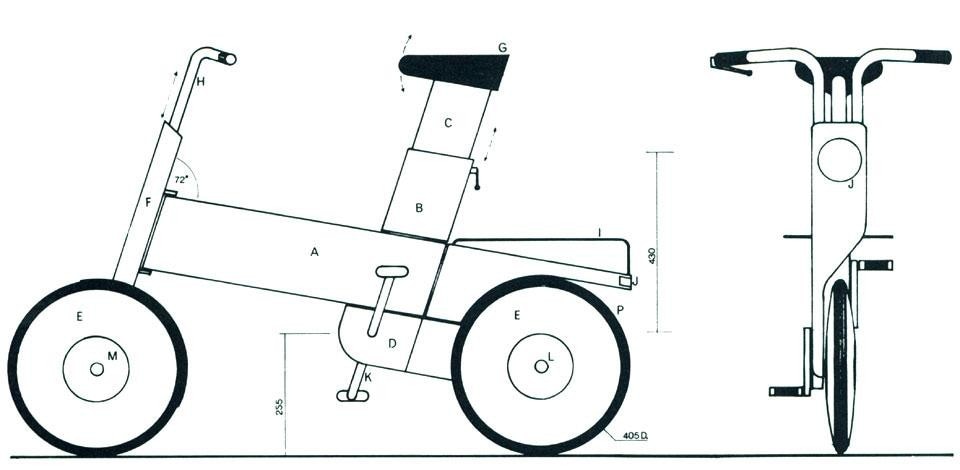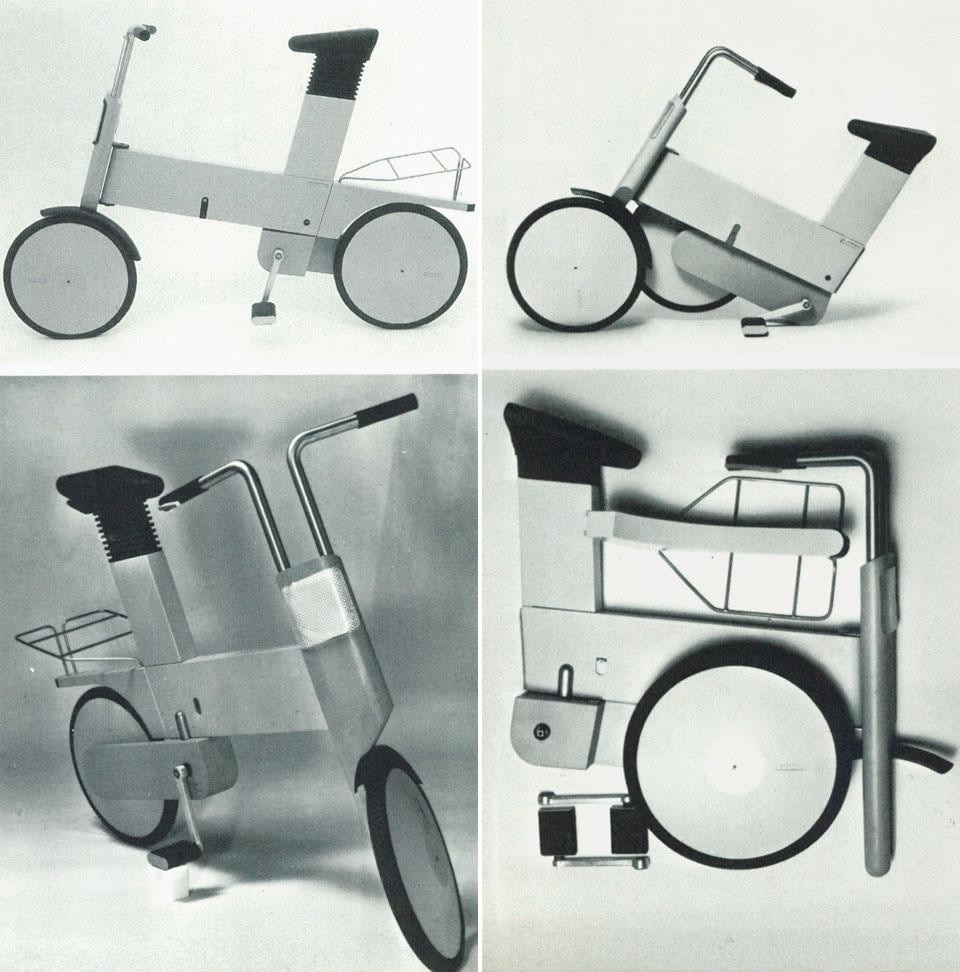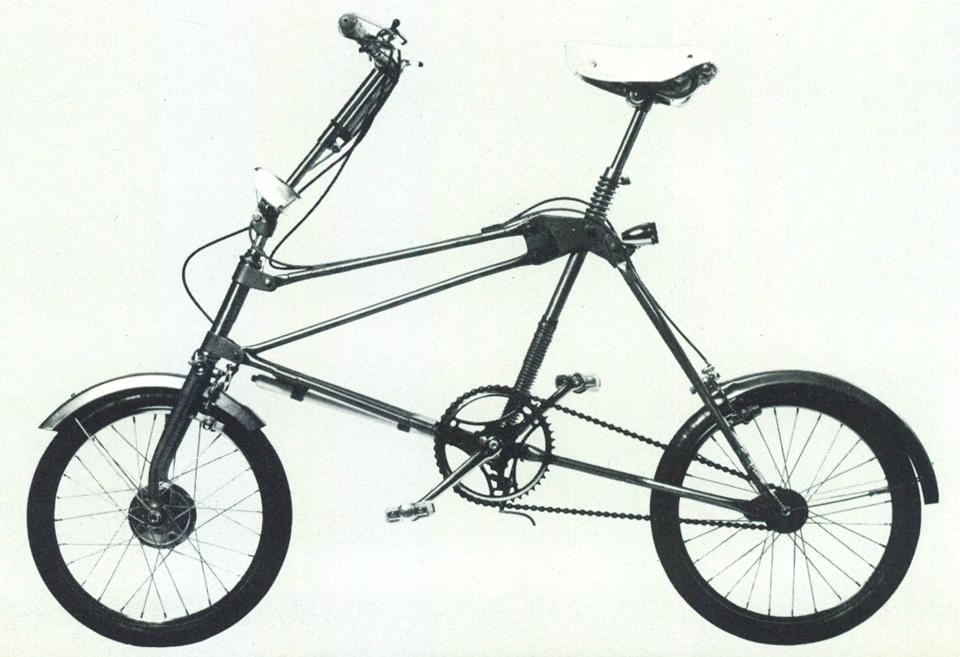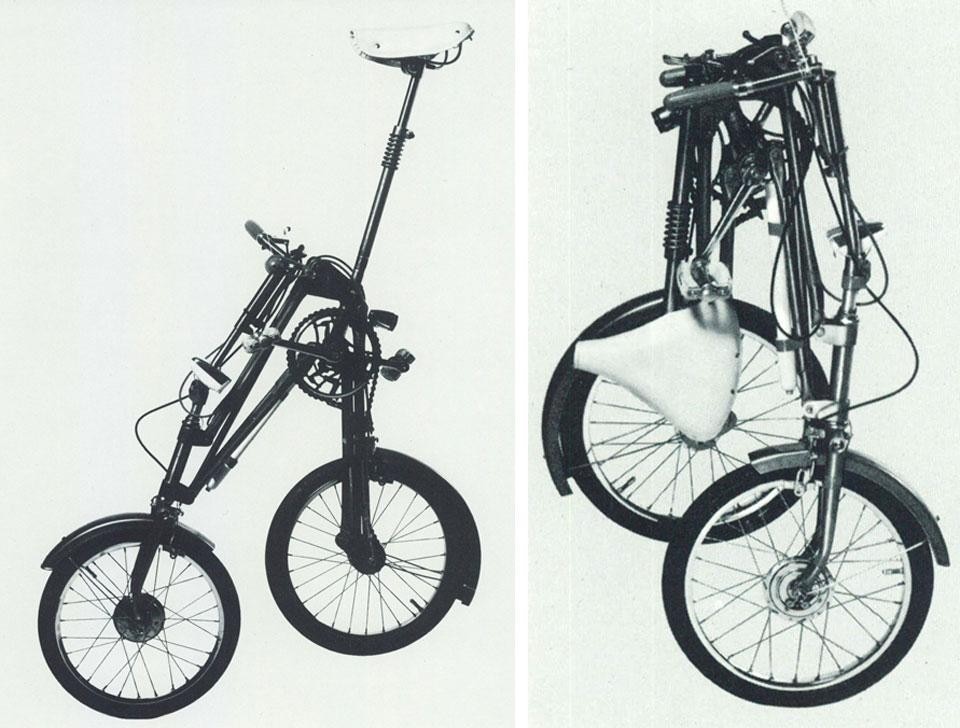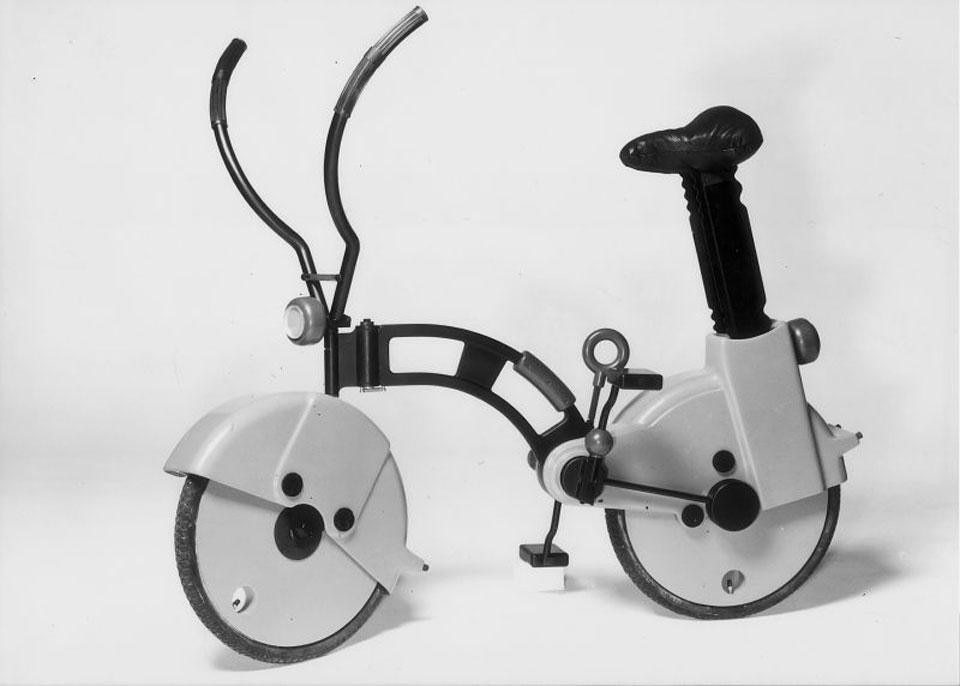This article was originally published in Domus 599 / October 1979
Bike of the future
A competition sponsored by the British Cycling Bureau in London
These pages illustrate the three winning projects in the "Bike of the future" competition, sponsored by the British Cycling Bureau in London. The object was to encourage research work on the possibilities of using the bicycle as a vehicle for individual transport and leisure. Chosen from more than four hundred entries, these models have in common an attention to the problems of bicycling in urban traffic; hence the smaller wheels and the maximum of collapsibility.
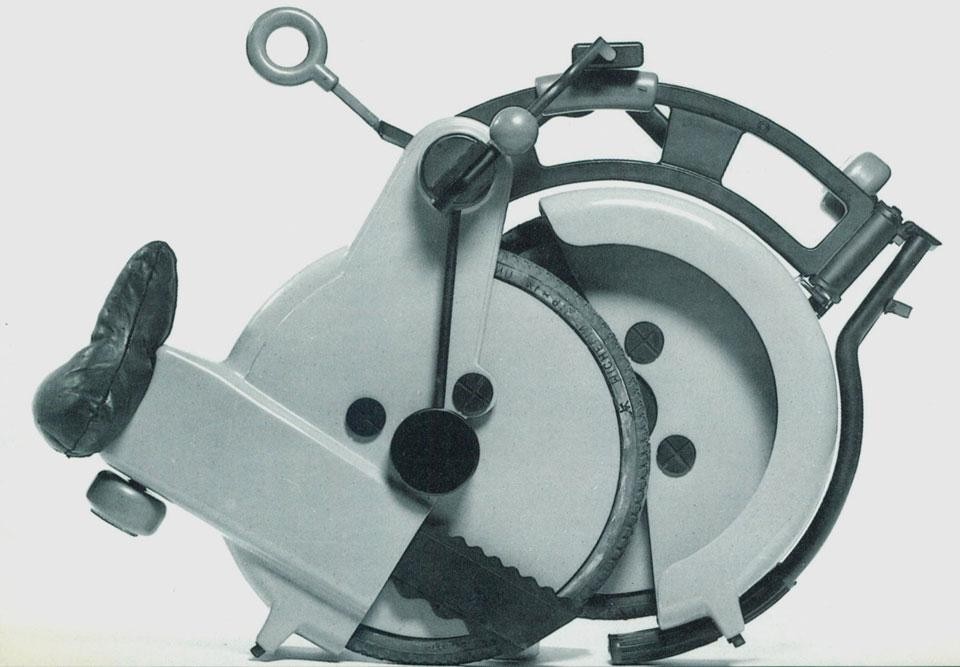
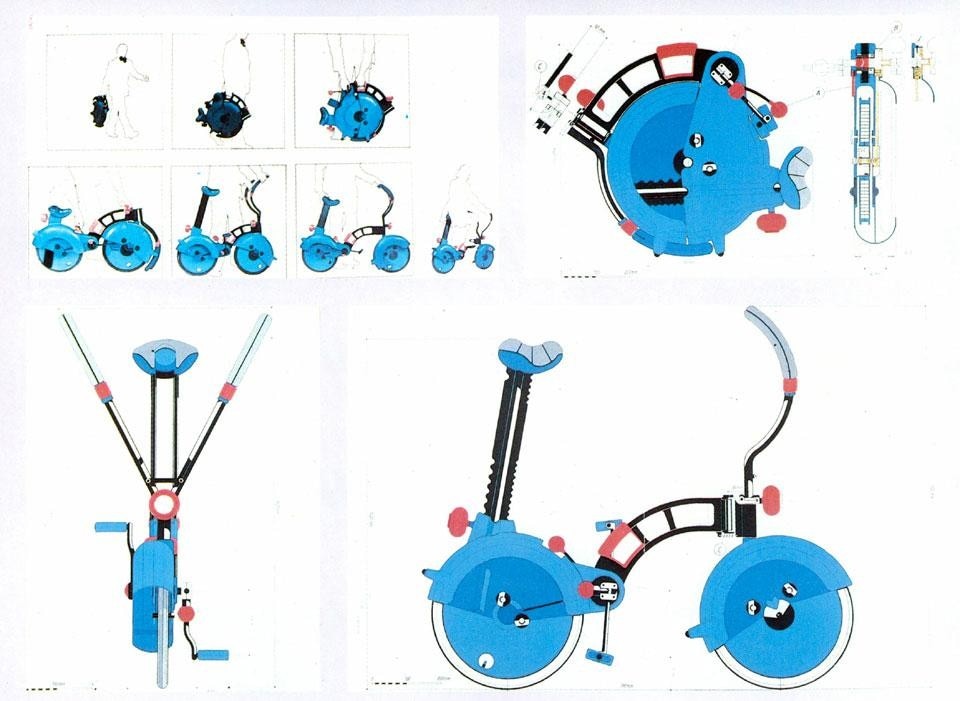
Chosen from more than four hundred entries, these models have in common an attention to the problems of bicycling in urban traffic; hence the smaller wheels and the maximum of collapsibility
